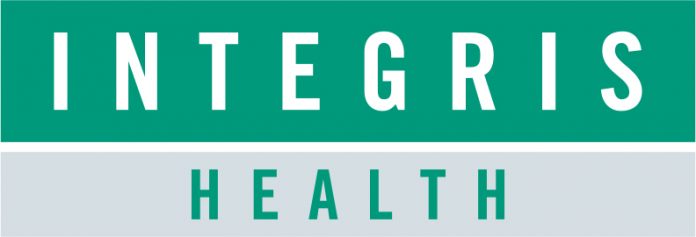INTEGRIS Health is encouraging Oklahoma lawmakers to support the Hospital Inpatient Services Modernization Act, so that hospital at home programs can continue to exist.
The Acute Hospital Care at Home (AHCAH) waiver program was implemented by the Centers for Medicare & Medicaid Services (CMS) to allow Medicare beneficiaries to receive acute-level health care services in their home environment during the COVID-19 public health emergency (PHE). The waiver program has allowed hospitals and health systems across the country to meet increased capacity demands during the pandemic, while providing safe, high-quality care in patients’ homes where they can be supported by their friends and family. To date, more than 200 hospitals and health systems in 34 states have received the waiver – including INTEGRIS Health.
The INTEGRIS Health @ Home program officially launched Jan. 31, and recently celebrated the discharge of its 100th patient. Forty-six-year-old Rachael Martin had been in and out of the hospital multiple times due to congestive heart failure and respiratory issues. She was thrilled to learn there was an alternative option to the traditional brick and mortar hospital. “The hospital at home program is so much more convenient and comfortable,” says Martin. “There’s no place like home… and that’s truly where every patient would prefer to be if given the choice.”
INTEGRIS Health @ Home provides hospital-level care to patients in the comfort and convenience of their own homes. Patients receive a remote patient monitoring kit and other clinical equipment as needed for their particular diagnoses. Standard equipment includes a blood pressure monitor, pulse oximeter, cellular-enabled digital tablet and a digital scale. Other devices can be added based on the patient’s needs. All the devices connect to a tablet through Bluetooth and transmit vital signs to a remote monitoring command center. The command center, staffed by INTEGRIS Health physicians and nurses, monitors patients 24/7 and responds immediately to a patient’s medical needs via video or telephone. Daily in-home visits by community paramedics, nurses, nurse practitioners and other health care professionals are also part of the treatment plan. IV therapies, oxygen treatments, lab tests, mobile imaging like x-rays and ultrasound are all performed in the home. Other services provided include skilled nursing, medications, infusions, behavioral health, and rehabilitation.
At this time, access to this care model is limited to patients with Medicare, Medicaid and Medicare Advantage health plans who accept the CMS waiver. Martin was only able to qualify for this option since SoonerCare agreed to accept the CMS waiver. “I immediately started feeling better as soon as I got home,” Martin declares. “I wish this program was available to everyone. I think countless Oklahomans could benefit from it.”
The problem facing current and future hospital at home patients is that the waiver flexibilities that enable this model of care are tied to the duration of the COVID-19 public health emergency (PHE), which is slated to run through mid-July 2022. While it may be extended further, the PHE can only be extended in 90-day increments. “Patients and their health care providers need greater certainty for this important care delivery option,” says INTEGRIS Health Hospital @ Home System Director Lisa Rother. “The waiver program has demonstrated positive outcomes, experiences and potential cost savings, reinforcing the need for broader adoption. ”
The Hospital Inpatient Services Modernization Act (S.3792/H.R. 7053) would ensure that patients and providers have access to these services for two years beyond the duration of the PHE. This bipartisan bill would also require that within one year of enactment, CMS issue regulations establishing health and safety requirements for AHCAH Programs.
“By extending the waiver program, Congress will sustain the existing momentum and investment in the program,” says Tom Cassidy, the director of government affairs at INTEGRIS Health. “It will also allow for additional experience and data collection that can inform the potential of a longer-term payment model for these services in the Medicare and Medicaid program. Without such an extension, programs like INTEGRIS Health Hospital @ Home will no longer be available for patients with Medicare and Medicaid health plans.” Click here to see a video explanation from Tom Cassidy.














